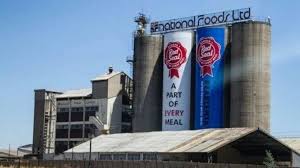National Foods commits to sustainable energy practices
National Foods, a leading food manufacturing company in Zimbabwe, has unveiled ambitious plans to reduce its energy consumption and transition to cleaner energy sources. The company’s sustainability report, which is part of its 2024 Annual Report, highlights significant strides made in energy efficiency and conservation.
The Group aims to minimise energy consumption across all operations by improving efficiency and investing in renewable energy solutions.
As a result, the company has set specific targets, including a 10 percent reduction in energy consumption per tonne of product produced by 2026 and a 35 percent reduction in reliance on grid electricity by the same year.
A key milestone in this journey is the installation of a 2.65MW solar energy facility at the Aspindale site, scheduled for completion in June 2025.
This solar plant is expected to significantly reduce electricity consumption, lessen the burden on the national grid, and minimise reliance on diesel generators.
“The facility is expected to be operational by June 2025 and will significantly reduce our electricity consumption for the site (by 30 percent), our burden on the national grid and reliance on back-up diesel generator systems,” said the company in its Annual Report for the full year to June 30, 2024.
“FY2024 saw a 5 percent increase in electricity usage as a result of improved availability of grid supplied electricity compared to F2023.
“There was a 34 percent increase in coal usage in 2024 due to increased volumes handled by the Stockfeed division in their operations as well as the volume used by the Cereal, Culinary and Baby Food (CCB) division. This increase was despite 1 467 tonnes of waste being sent to the boilers as fuel.”
Water conservation efforts
Water conservation is another crucial aspect of National Foods’ sustainability strategy. The Group used 45 percent less water overall than in 2023.
“This is largely due to the completion of the Stirling Road construction project. Water conservation programs are in place and performance indicates general consistency in usage,” reads the sustainability report in part.
“With 20 percent of our water being supplied by the Municipality, the Group had to source 80 percent from borehole water in 2024.
“With our production predominantly involving dry processes, our operations focused on reducing the Group’s general water use and consumption through the installation of water metres, allowing us to monitor our water use,” said National Foods.
“Our goal is to provide constant potable water and ensure the sustainable management of effluent.
“We target to achieve 100 percent water availability, 100 percent water quality and zero effluent fines.
“We are pleased to report that we achieved 100 percent availability of water with no fines from the municipality.”
The company has implemented measures to reduce water usage, including the installation of water metres to monitor consumption.
“The Group learnt that effective water and effluent management can create value for the business and reduce costs of noncompliance with national laws.”
By focusing on efficient water management and minimising effluent pollution, National Foods aims to ensure sustainable water usage.
A greener future
National Foods’ commitment to sustainable energy and water practices aligns with its broader goal of environmental responsibility. By adopting innovative solutions
and prioritising efficiency, the company is not only reducing its environmental impact but also enhancing its long-term sustainability.
As National Foods continues to invest in renewable energy and water conservation initiatives, it sets a positive example for the industry and demonstrates its dedication to a greener future.-ebsinessweel










